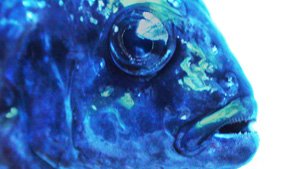18th Feb 2010
Pesticides and Pets
More than 500,000 kg of approximately 600 different pesticide chemicals are applied annually in the US, while approximately 2.5 million tons are used throughout the world (Pimentel 1996).
The World Health Organization reported in 1992 that about three million pesticide poisonings occur in humans annually and result in 220,000 deaths worldwide.
Our pets are more vulnerable to pesticide poisoning than their human companions since they are in closer and direct contact to pesticide-treated areas such as the grass in the dog park, and because they keep licking themselves clean.
 Lawns
Lawns
A study published in 1991 found that dogs whose owners’ lawns were treated with the herbicide 2,4-D at least times per year, were twice as likely to develop canine malignant lymphoma than dogs whose owners did not use this herbicide. Exposure to herbicide-treated lawns and gardens also increases the risk of bladder cancer by more than four times in dogs.
Good ways to help prevent pesticide poisoning in your pet is to keep pesticides off your property and to routinely wash your pet’s paws after he spent time outside.
Insect repellants
Many pets are treated with flea and tick repellents. Research studies link hyperthyroidism in cats to flea powders or sprays and lawn pesticides. A World Health Organization study linked allethrin, a common ingredient in home mosquito and other home insect repellant products, to liver disease in dogs. Chronic exposure to abamectin, a commonly insecticide used on fire ants was shown to affect the nervous system of dogs, including lethargy and tremors.
A great way to avoid pesticide poisoning of your pet is to give natural pest control measures a good shot before using synthetic ones in your home or on your pet.
Pet food
Pesticides accumulate in our pets’ bodies also if they eat foods that have been treated with synthetic pesticides (i.e., the non-certified organic pet foods) or fish which have accumulated these toxins in their lives. Pesticide contamination in pet foods has been shown to increase the risk of hyperthyroidism in cats.
The safest way to avoid feeding your pet pesticides along with her food, is to choose certified organic pet foods, which per law have to be grown and processed without toxic chemicals.
 Pesticide in water and fish
Pesticide in water and fish
Pesticides that are applied to agricultural or landscaping areas often wash off through irrigation or rain into our waterways such as rivers, lakes, and oceans. After fish take up the pesticides from the water through their gills, guts, and skin (which also covers the scales), these toxins are stored predominantly in the fish’s fatty tissue. The older the fish gets, the more toxins, including pesticides, accumulate in its fatty tissue.
Omega-3 in fish
Omega-3s offers excellent health benefits; however, if they are derived from fish, they come from the fish’s fatty tissues which accumulate pesticides to a great extent. Problems occur when pet guardians who want to improve their pets’ health naturally, choose omega-3 rich fish-based foods (e.g., those containing fish meal) for their pets which consequently can unknowingly ingest high amounts of pesticides.
Pesticides ingested and accumulated through eating fish can cause significant health problems. Organochlorines are known endocrine disrupters which interrupt normal hormone processes which are essential for every biological process. Organochlorines, even at very low concentrations, interfere with reproduction, growth and development.
To avoid pesticide poisoning when feeding omega-3 rich foods, select foods that are prepared from small fish, give fish oils which have been shown to contain fewer organochlorines, and consider feeding your pet also other omega-3 rich foods such as flax seeds.
If you suspect your pet has been poisoned contact the ASPCA Animal Poison Control Center at 888-426-4435.
Learn more about pesticide toxicity on the Beyond Pesticides website (www.beyondpesticides.org).

